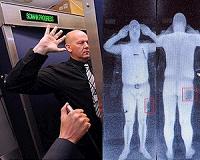 |
Osaka (AFP) March 31, 2011 The level of radioactive iodine in the sea off Japan's disaster-hit Fukushima nuclear plant has soared to its highest reading yet at 4,385 times the legal limit, the plant operator said Thursday. The level of iodine-131, reported a few hundred metres (yards) south of its southern water outlet has risen in a series of tests since last week, carried out by plant operator the Tokyo Electric Power Company (TEPCO). Previous readings there were 1,250 times the legal maximum on Friday, 1,850 times the limit on Saturday and 3,355 times the limit on Tuesday. A 9.0 magnitude earthquake and tsunami on March 11 knocked out the cooling systems of the Fukushima plant's six reactors -- triggering explosions and fires, releasing radiation and sparking global fears of a widening disaster.
earlier related report The Ministry of Environmental Protection said in a notice late Wednesday that radiation was detected across the country's heavily populated eastern, northern and southern regions. The ministry said on Monday that radioactive iodine was detected in a handful of provinces, but subsequent statements have tracked a steady widening of the affected areas. However, the latest ministry notice repeated earlier assertions that the amount of radioactivity was only about one-thousandth of what a person would receive during a 2,000-kilometre (1,200-mile) air flight. Japan's atomic crisis has caused concern in China, sparking earlier panic-buying of salt nationwide as consumers mistakenly believed that the iodine it contained could protect against radiation poisoning. The government has also banned imports of several food products from Japan and stepped up checks at airports, seaports and other travel hubs amid fears of radiation contamination. The Fukushima Daiichi Nuclear Power Plant was hammered by Japan's March 11 twin earthquake and tsunami disasters, and workers have struggled with the dangerous task of trying to bring radiation leaks under control.
Share This Article With Planet Earth
Related Links Space Technology News - Applications and Research
 Cancer Risk Of Backscatter Airport Scanners Is Low
Cancer Risk Of Backscatter Airport Scanners Is LowSan Francisco CA (SPX) Mar 31, 2011 Calculations by researchers at the University of California, San Francisco and the University of California, Berkeley estimate that the cancer risk associated with one type of airport security scanners is low based on the amount of radiation these devices emit, as long as they are operated and function correctly. "The doses are low - extremely low," said Rebecca Smith-Bindman, MD, a profes ... read more |
|
| The content herein, unless otherwise known to be public domain, are Copyright 1995-2010 - SpaceDaily. AFP and UPI Wire Stories are copyright Agence France-Presse and United Press International. ESA Portal Reports are copyright European Space Agency. All NASA sourced material is public domain. Additional copyrights may apply in whole or part to other bona fide parties. Advertising does not imply endorsement,agreement or approval of any opinions, statements or information provided by SpaceDaily on any Web page published or hosted by SpaceDaily. Privacy Statement |